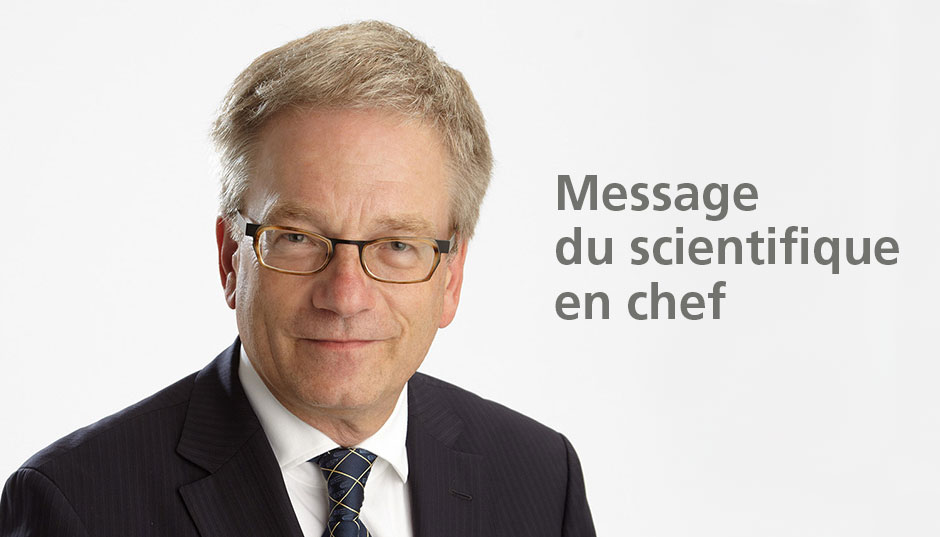The year 2015 is already well underway. On the fiscal front, 2015–2016 will be a period of transition as the government aims to balance the budget. Still, several major projects involving the Fonds de recherche du Québec (FRQ) were recently announced or are about to be launched across the province.
Among these initiatives, at a press conference held on February 13th with three ministers and the mayor of Montréal in attendance, Québec Premier Philippe Couillard announced the appointment of Concordia University researcher Mr. Paul Shrivastava as the executive director of Future Earth. The city will not only host one of the five hubs of the secretariat of this new international organization but also its headquarters. Seeking to fund climate change and sustainable development research including green cities and biodiversity, Future Earth is a unique opportunity for all researchers in the field to influence and play an active role in the development of large-scale international projects in one of Québec’s priority sectors. Montréal International, the city’s universities, my administrative team and myself worked tirelessly to bring Future Earth to Montréal. We are proud of our success but also know that it is just the beginning. We must now ensure that the experts and partners focused on the research and innovation issues that Future Earth supports join forces so that Québec is recognized as a leader in the field.
Northern research
Of course, the city of Québec wasn’t left behind! In February, it hosted two important meetings on northern research. The first—the Journée de la recherche du Fonds de recherche du Québec – Nature et technologies (FRQNT)—was held on February 24th at Université Laval and brought together natural sciences and engineering experts under the theme La recherche nordique : un regard québécois, une portée international. Researchers from Québec and abroad presented their findings in fields as diverse as geothermics, mining reclamation, biodiversity and agriculture in the northern context. The president of Iceland, Mr. Ólafur Ragnar Grímsson, who spearheaded the Arctic Circle initiative, took part in some of the discussions. The day ended with the presentation of the 2015 Prix d’excellence du FRQNT to Isabelle Peretz, a research professor in psychology at Université de Montréal, in recognition of her work on the neurocognition of music. Mr. Yves Bolduc, former Minister of Higher Education, Research and Science, gave the closing address. Afterwards, Mr. Grímsson received an honorary doctorate from Mr. Denis Brière, the rector of Université Laval. This highly productive day clearly demonstrated the excellence of Québec’s northern research teams.
The second major event was the International Symposium on Northern Development, which was held from February 25 to 27. Co-chaired by the government of Québec and the Nordic Council of Ministers, the seminar aimed to foster the sharing of northern knowledge, experiences and sustainable development visions. Over 300 speakers presented their most recent results, including findings on the impacts of climate change on northern populations, mine exploration and sustainable development and northern cultures. Once again, Québec and Canada emerged as leaders in the field. The launch of Future Earth in Montréal should further highlight the visibility and influence of our researchers in this area of global concern that is critical to the survival of our planet.
Life sciences
In December, the Alliance santé Québec organized a major forum for its partners, taking a strategic position within the context of the vast reforms introduced with the adoption of Bill 10, which modifies the organization and governance of the health and social services network, in particular by abolishing the regional agencies, and Bill 20, which aims to foster access to family medicine and specialized medicine services and amend various legislative provisions related to assisted reproduction. We will be following the developments in these matters with keen interest.
There were also several important announcements in the life sciences sector, including the launch of the early clinical research initiative led by Montréal InVivo and the inauguration of the McGill University Health Centre.
Finally, on February 19th, I took part in a round-table meeting on the future of the university mission at Université du Québec à Chicoutimi. There were particularly interesting discussions on training for new generations of academics, the recognition of diverse disciplines and research intersectorality—great challenges that lie ahead!
Upcoming activities
On April 2nd, a seminar on entrepreneurship, SMEs and creativity jointly organized by Université de Sherbrooke, Bishop’s University and the Fonds de recherche du Québec – Société et culture will be held in Sherbrooke to determine sectoral research needs based on government priorities to eventually launch calls for proposals for research projects on this priority topic. The future research program will aim to stimulate and implement conditions to foster entrepreneurship and make SMEs even more innovative, creative and successful. Over 100 stakeholders from different fields and backgrounds, including researchers, entrepreneurs, representatives from commercialization firms, the financial community, academic entrepreneurship centres and government departments and business people, will be on hand to share their knowledge of the creativity in business dynamic and its favouring factors. Your feedback is appreciated.
Also, in late April, the FRQ will be hosting a breakfast meeting for elected officials at the National Assembly to better promote the research supported by the Fonds with a special focus on new generations of researchers. We are also very much looking forward to welcoming you to this year’s ACFAS conference at Université du Québec à Rimouski. On Wednesday, May 27th, the Fonds will lead a dinner debate entitled La recherche universitaire et collégiale, un atout pour le développement du Bas-Saint-Laurent. We hope to see you there!
On another front, we are currently working on the budgets of the FRQ. As I mentioned earlier, 2015–2016 will be a year of transition and no increases are expected. I am therefore focused on the 2016–2017 budgets with the real hope that new funds will be injected into the three agencies and higher sums will be dedicated to research into major social challenges. Success is far from guaranteed but, with your support and that of the community, I remain quite optimistic. I appreciate your comments and suggestions on the next steps.
Finally, my scientific director colleagues and I are very concerned with the ties between science and society. It is a very sad commentary when sound scientific findings—conclusions pertaining to the measles vaccine or climate change, for example—are ignored by so many. Recent editorials by Alain Dubuc in La Presse (Le mépris de la science) and Alan Leshner in Science (Bridging the opinion gap) are very eloquent in this respect. Promoting research and science requires the involvement of all stakeholders at every level, from elected officials to boards of trade, elementary schools, Rotary Clubs and places of worship. We are currently considering a strategy, possibly in partnership with universities, to better communicate the significance and relevance of research and science to the public. Again, your feedback and especially your ideas on ways to get involved are appreciated!
In closing, I was very pleased to learn that Mr. François Blais was appointed minister of Education, Higher Education and Research. He is very familiar with Québec’s research and university networks and with the Fonds de recherche du Québec. As an adviser to the minister, I foresee a stimulating and construction relationship ahead.
And on behalf of the members of the boards of directors of the FRQ, I would like to thank Mr. Yves Bolduc for his excellent work as minister of Higher Education, Science and Research. Throughout his mandate, he demonstrated his unfailing support for research and the Fonds de recherche du Québec, and our collaborations were highly productive. He believes in the importance of public research in a knowledge society such as Québec and in the strategic role of the Fonds in research development across the province. I wish him much success in his return to private life.
I hope you enjoy the last few weeks of winter!
Best regards,
Rémi Quirion, O.C., C.Q., PhD, FRSC
> See more messages to the community





